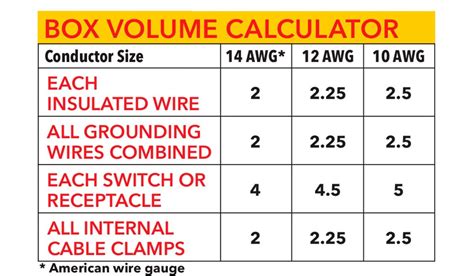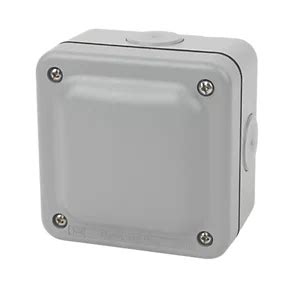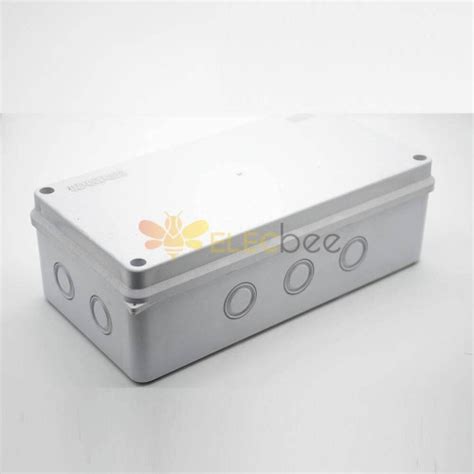electrical junction box material Junction boxes serve several important functions in electrical systems. Here are their primary purposes: 1. Protection of Electrical Connections. Junction boxes enclose and protect electrical connections from physical damage, dust, . Flat Bed CNC Lathes, Horizontal CNC Lathes, Multi-axis CNC Lathes, Okuma, Mori Seiki, and Haas cnc lathes for sale. Find used CNC lathes on Machinio.
0 · types of electrical junction boxes
1 · standard electrical box size chart
2 · screwfix weatherproof junction box
3 · screwfix waterproof junction box
4 · screwfix junction boxes electrical
5 · residential electrical junction box
6 · outdoor electrical junction box screwfix
7 · electrical junction box with terminals
Manufacturers of a Variety of USA Made Metal Boxes. Since the 1950’s Pioneer Steel Company has been around manufacturing 100 percent American-made steel toolboxes, lock boxes, drop off boxes and other garage, shop and trailer organizers.
Terminal and junction boxes are used to house electrical components and facilitate wiring. When selecting terminal or junction boxes, correct size and adequate protection are the priorities. .

An electrical box, also known as a junction box, is an essential component in electrical installations. It serves as a protective enclosure for electrical connections, ensuring . It’s important to know the different materials available for electrical boxes. You can decide between plastic or metal boxes, each with its own pros .Junction boxes serve several important functions in electrical systems. Here are their primary purposes: 1. Protection of Electrical Connections. Junction boxes enclose and protect electrical connections from physical damage, dust, . In this guide, you’ll learn about the typical materials, their benefits and drawbacks, and how to pick the best junction box for your needs. Is it safe to use plastic electrical boxes for outdoor installations? How to make a .
A junction box – also known as an ‘electrical box’, ‘jbox’, ‘or ‘terminal box’ – is a protective box where wires are interconnected. Junction boxes are often built into the plaster of a wall, in the ceiling, or within concrete. A junction box is not a special type of box but any standard electrical box used to enclose wire splices. The most commonly used box for junctions is a 4-inch square box (either metal or strong plastic), which offers ample space for making wire connections with multiple wires or .
Terminal and junction boxes are used to house electrical components and facilitate wiring. When selecting terminal or junction boxes, correct size and adequate protection are the priorities. When considering quality of protection, material type and professional rating systems are . An electrical box, also known as a junction box, is an essential component in electrical installations. It serves as a protective enclosure for electrical connections, ensuring safety and preventing damage to the wiring system. Junction boxes come in various types, each designed for specific applications and environments.
It’s important to know the different materials available for electrical boxes. You can decide between plastic or metal boxes, each with its own pros and cons. Plastic boxes are the most common choice for residential wiring projects. They are lightweight, easy to install, and less expensive than metal options.
Junction boxes serve several important functions in electrical systems. Here are their primary purposes: 1. Protection of Electrical Connections. Junction boxes enclose and protect electrical connections from physical damage, dust, moisture, and other environmental hazards. In this guide, you’ll learn about the typical materials, their benefits and drawbacks, and how to pick the best junction box for your needs. Is it safe to use plastic electrical boxes for outdoor installations? How to make a waterproof junction box?Electrical Boxes vary in size, material, number of gangs, and shape and are designed for specific uses like junctions, outlets, and switch or fixture boxes for wiring in wall or ceiling. Use this guide to determine the best electrical box choice for your application.
Electrical boxes, also known as junction boxes, are an essential component of any electrical system. They serve as a protective enclosure for electrical connections and devices, helping to prevent electrical fires and other hazards. Electrical boxes come in a variety of types and sizes, each with its own specific use case. A junction box is an essential part of the electrical wiring systems for homes and commercial buildings. These metal or plastic boxes house and safely protect a structure's electrical connections. The electrical casings come in . A junction box – also known as an ‘electrical box’, ‘jbox’, ‘or ‘terminal box’ – is a protective box where wires are interconnected. Junction boxes are often built into the plaster of a wall, in the ceiling, or within concrete. A junction box is not a special type of box but any standard electrical box used to enclose wire splices. The most commonly used box for junctions is a 4-inch square box (either metal or strong plastic), which offers ample space for making wire connections with multiple wires or .
Terminal and junction boxes are used to house electrical components and facilitate wiring. When selecting terminal or junction boxes, correct size and adequate protection are the priorities. When considering quality of protection, material type and professional rating systems are . An electrical box, also known as a junction box, is an essential component in electrical installations. It serves as a protective enclosure for electrical connections, ensuring safety and preventing damage to the wiring system. Junction boxes come in various types, each designed for specific applications and environments. It’s important to know the different materials available for electrical boxes. You can decide between plastic or metal boxes, each with its own pros and cons. Plastic boxes are the most common choice for residential wiring projects. They are lightweight, easy to install, and less expensive than metal options.Junction boxes serve several important functions in electrical systems. Here are their primary purposes: 1. Protection of Electrical Connections. Junction boxes enclose and protect electrical connections from physical damage, dust, moisture, and other environmental hazards.
In this guide, you’ll learn about the typical materials, their benefits and drawbacks, and how to pick the best junction box for your needs. Is it safe to use plastic electrical boxes for outdoor installations? How to make a waterproof junction box?Electrical Boxes vary in size, material, number of gangs, and shape and are designed for specific uses like junctions, outlets, and switch or fixture boxes for wiring in wall or ceiling. Use this guide to determine the best electrical box choice for your application.
Electrical boxes, also known as junction boxes, are an essential component of any electrical system. They serve as a protective enclosure for electrical connections and devices, helping to prevent electrical fires and other hazards. Electrical boxes come in a variety of types and sizes, each with its own specific use case.

types of electrical junction boxes

blood of the dead electrical boxes

Learn how to install an electrical junction box, why you might need one, and how .
electrical junction box material|types of electrical junction boxes